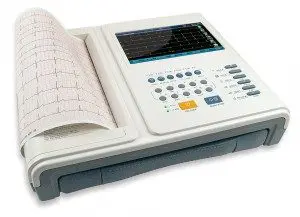source: EIN news
ROCHESTER, NY, UNITED STATES, September 8, 2017 /EINPresswire.com/ — Frequently used by hospitals to monitor their patients, an electrocardiograph (ECG) records the electrical currents produced by the heart through leads attached to the patient. Given the sudden and critical nature of cardiac arrest, ECG leads remain on the patient when a defibrillator is used. To ensure the safety of the patient and reliability of the ECG, the equipment must be able to withstand the shock of the defibrillator—a feat made possible by Ohmcraft’s high voltage resistors.
Medical instrument and equipment manufacturers have long relied on high precision resistors from Ohmcraft to maximize the functionality and reliability required from their devices. They must use high voltage and low noise resistors that can fit in this type of small, multi-channel equipment. Ohmcraft utilizes the proprietary Micropen precision printed technology to produce the pulse-handling capabilities needed for critical medical circuits.
“In moments of sudden cardiac arrest, the last thing that medical professionals should need to worry about is the reliability and durability of the equipment,” said Eric Van Wormer, Vice President of the Ohmcraft division of Micropen Technologies. “Our ability to manufacture high performance resistors with all of the essential criteria—high voltage, low noise, small size—is what sets us apart. We partner with many medical equipment manufacturers involved in the design of a variety of products used in medical diagnosis, treatment, and prevention. In these applications, accuracy and stability are especially paramount.”
According to the American Heart Association, there are more than 209,000 incidents of in-hospital cardiac arrest each year. Failure of ECGs to withstand the high electrical current provided by defibrillators could result in permanent damage to medical equipment, loss of critical data pertaining to the patient, and, in some cases, harm to the patient themselves. Proper endurance of ECGs is therefore vital to patient care and recovery.
featured image: Infinium medical






























